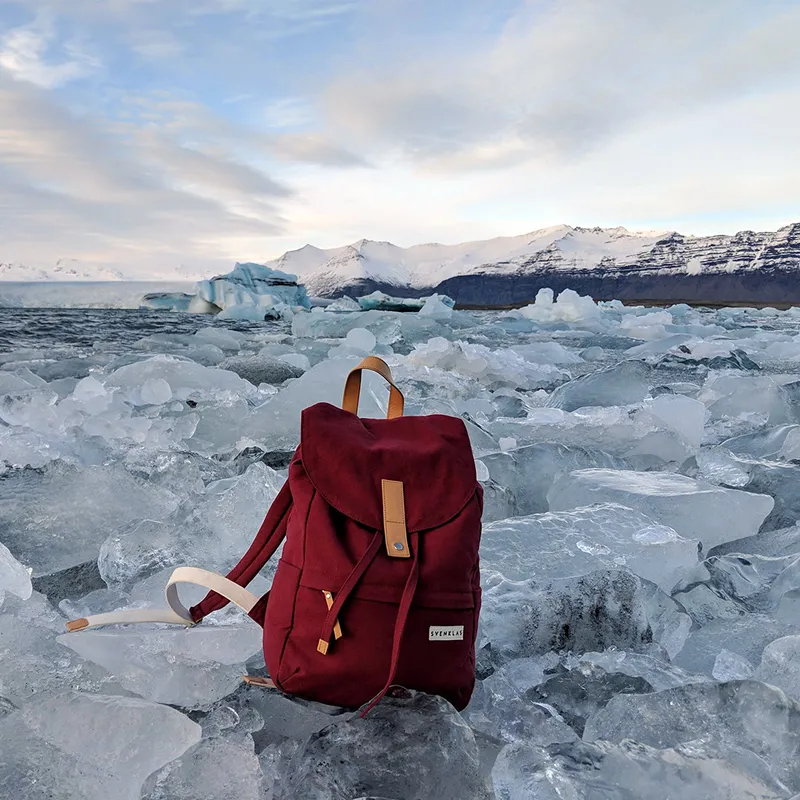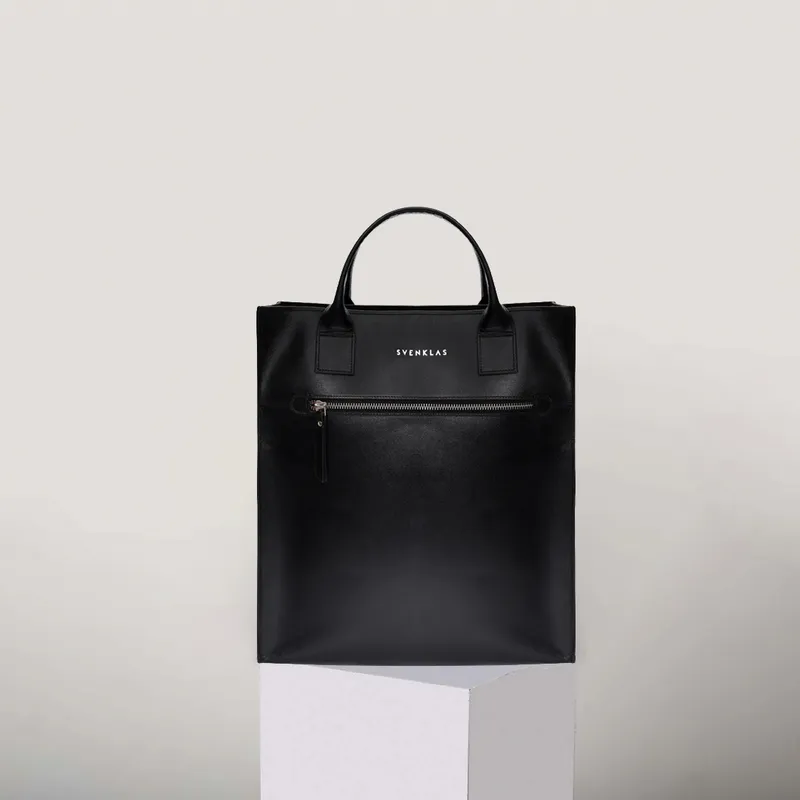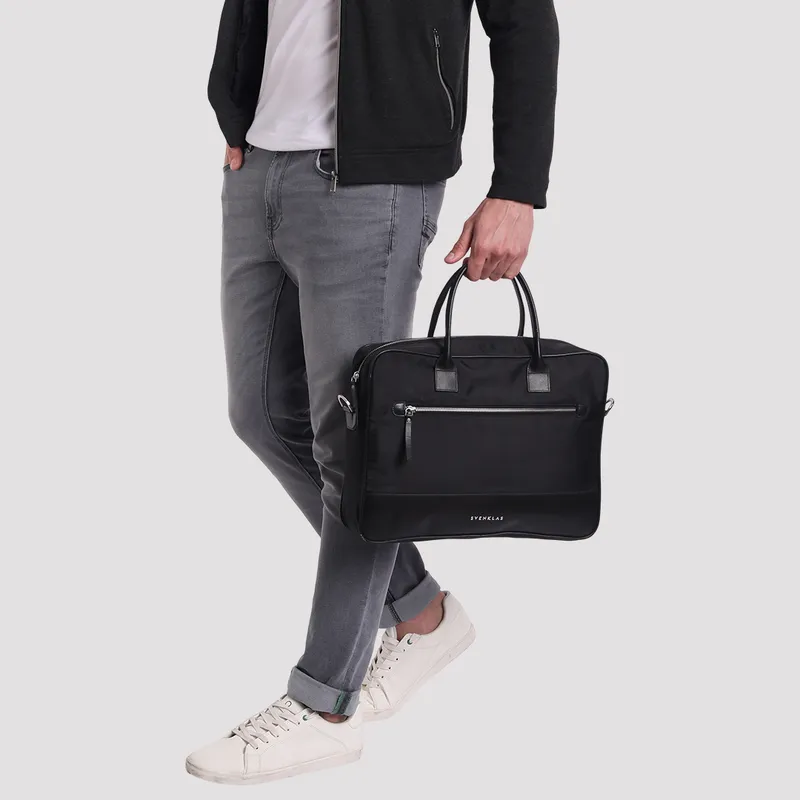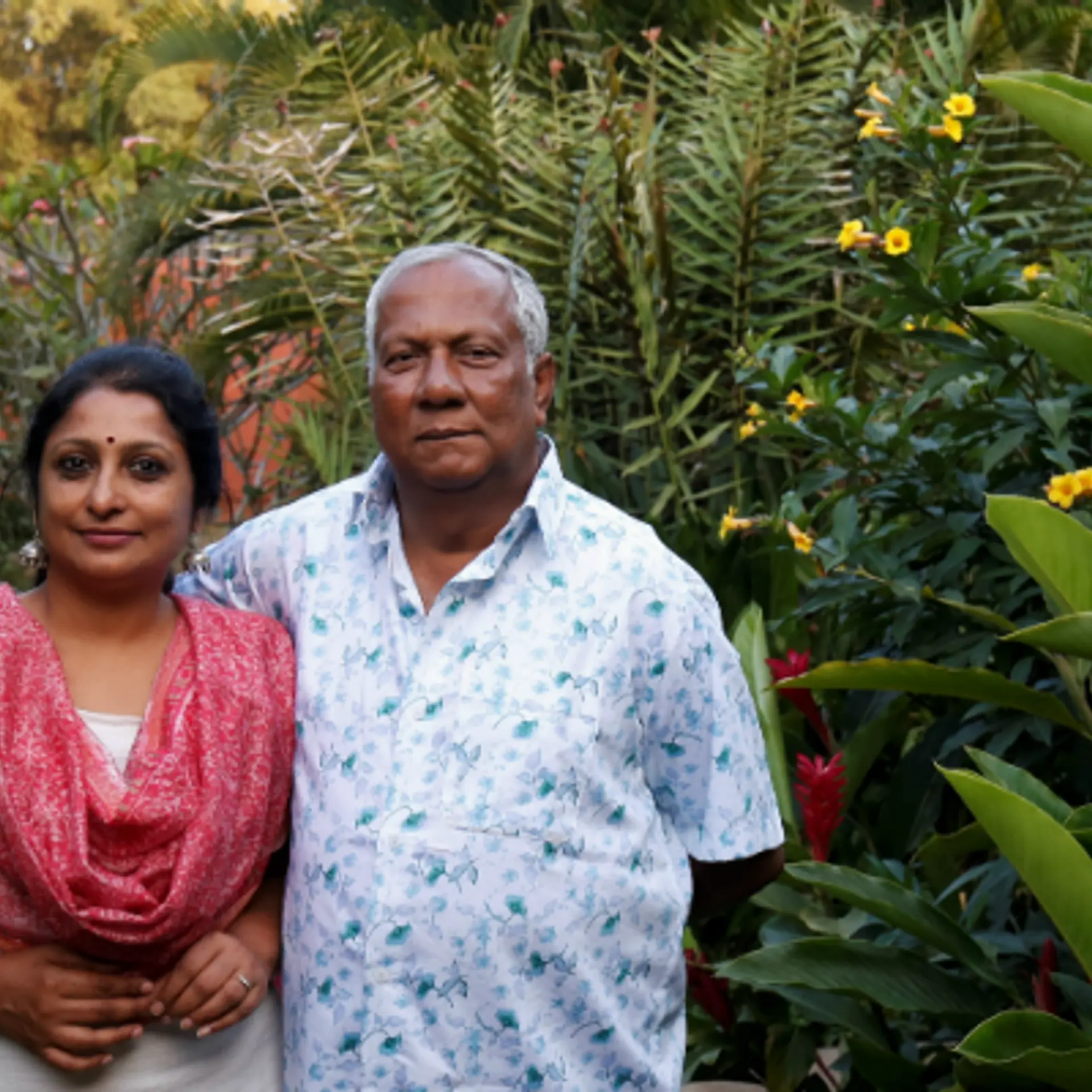This premium accessory brand is standing out with a focus on sustainability
Gurugram-based lifestyle brand Svenklas offers sustainable, design-driven, and premium quality backpacks, bags, and travel accessories.
Hailing from Dehradun and Shimla, respectively, Nischal and Nikhil Sharma say they were born with love and respect for nature. The duo—not related—met in Gurugram in 2017 while working on a design project at a marketing firm called Ebee Global.
“Nikhil comes from a design background, and I from the product, so we have complementary skills. That worked out well for us,” Nischal says.
In 2019, the duo founded Svenklas, a design-driven premium lifestyle accessory brand, with an initial investment of Rs 5 lakh.
They had “a shared vision to create products that are rich in meaning, quality, and story” while paying close attention to aesthetics, premium materials, and artisanal craftsmanship.
The Gurugram-based brand offers backpacks, messenger bags, tote bags, hip packs, and wallets. It recently launched a collection of T-shirts, but Nischal says the “main focus is bags”.
Nischal, 29, has an engineering background but switched to product marketing. He gained expertise in brand building while working for an advertising agency.
Nikhil, 33, on the other hand, got a degree in architecture and made the switch to design. He worked as a User Experience (UX) designer, where he focused on creating intelligent designs that are user-friendly.

Svenklas backpack
With , their focus is to create minimal, classy, and functional products with unique designs and colour combinations. The lifestyle products startup currently serves over 5,000 customers across India and has completed almost 6,500 orders.
The company sells through its own website and Amazon. “About 80% of sales come from our website and 20% from Amazon,” says Nischal, adding that their products are also available offline in a retail store in the US.
Svenklas, which began with a team of two, has now grown to a team of 18 people, including 12 artisans.
Sustainability at the forefront
Nischal and Nikhil left the company they were working in to start a business together in 2017. They made lifestyle products from discarded billboards at airports. However, they faced challenges in sourcing raw materials and could not scale the business. That’s when they considered a sustainable accessory brand.
“For us, sustainability encompasses all aspects of the production process, from choosing the right suppliers to recycling the end product. It does not just refer to the use of recyclable and organic materials,” Nischal says.

Svenklas totepack
The name Svenklas is derived from combining two Nordic root words, ‘Sven’ and ‘Klas’, translating into ‘Victory for the Youth’. The company’s bags are made of leather, canvas, fabric, and metal hardware.
The leather is sourced from certified suppliers based in Europe and South America. The startup looks for certifications from Leather Working Group (LWG) certifications, a not-for-profit membership organisation that certifies leather companies that meet its audit standards. All leather is vegetable tanned and naturally dyed.
Organic cotton is sourced from suppliers in Uttarakhand and Madhya Pradesh, and natural colours are used to dye the fabric in factories. The startup also uses recycled polyester.
YKK, a Japan-based company, supplies the hardware. “We source hardware from outside because such high-quality hardware is currently not available in the Indian market," Nischal says.
The founders work with manufacturing units that have an audit rating of 85-90%. This score takes into account worker conditions, fair wages, residual waste management, and power generation methods. Majority of them are solar-powered, located in Gurugram, Mumbai, and Chennai.
The brand also promotes other sustainability initiatives. It has collaborated with GiveIndia, an online donation platform, to plant two moringa trees for every product sold. The Svenklas Recycle Shop allows customers to return the products back to the company for recycling after they have been used.
Eyeing the premium segment
When the founders decided to start an accessory brand, they researched materials legacy brands like Nike, Adidas, and big traditional players like Da Milano were using.
They realised that there was a gap with respect to the sustainability and quality of fabric and price points. “There was no aspirational price point. Either things were very cheap or too expensive. We found a sweet spot we could cater to,” Nischal says.
The founders decided to create an aspirational premium category where users would not buy instantly. However, the products would be within reach and they could plan purchases.
“The luxury audience is less than 1% in India. We wanted to expand the reach to at least 6-7%,” he adds.
The brand has around 25 SKUs across six categories, and most are designed by Nikhil. “We try to use the 10 principles of Dieter Rams, a German designer, in all our products, which includes making the product functional, aesthetic, and environmentally friendly,” Nischal says.

Svenklas Messenger Bag
Svenklas’ Average Order Value (AOV) is Rs 4,000. It is working to bring the price of leather products down to Rs 7,000-Rs 8,000, and of products that use leather, canvas, and recycled polyester to around Rs 4,000.
Similar products by luxury brands like Louis Vuitton and Prada are priced between Rs 30,000 and Rs 40,000.
The startup competes with Indian brands such as Nappa Dori and Da Milano. Da Milano’s leather range is also priced at the higher end.
The founder says their target market includes people aged between 23 and 35 years, millennials, and travellers with good disposable income. Currently, most sales come from Mumbai, Pune, Bengaluru, and Delhi.
The idea is to tap the Tier II markets extensively as people there “have a good income, but they don’t have visibility to these products in the offline market”.
Challenges along the way
It was difficult for Svenklas to find manufacturers in the early years because they were unwilling to accept small orders per SKU. When they did, the manufacturers did not produce products of the quality the founders wanted.
“Finding the right manufacturers was the biggest challenge in the first eight months,” Nischal says.
The founder recalls that the COVID-19 pandemic brought a lot of challenges and “was a tough time”. “One of our retailers in the US shut shop, and we could not liquidate that inventory there.”
The duo had to invest a lot of their savings to keep the bootstrapped company afloat. They took pre-orders and assured customers that they would receive the products once restrictions were lifted.
The path ahead
The brand currently has a year-on-year growth of 2.5X.
“We were growing at 5X to 6X before COVID. We are looking to grow to that level in the coming financial year,” Nischal says.
Svenklas intends to expand its presence in the Middle East and Southeast Asia markets and is in contact with retailers and distributors there. "We're using what we've learned from the US market to expand in these regions," he says.
The startup also aims to expand into India's Tier II market and increase the focus on women's categories. In the long run, it wants to have a sizable offline presence in India and abroad.
“Someone in another part of the world should know that this brand is from India," Nischal says.
Edited by Teja Lele







